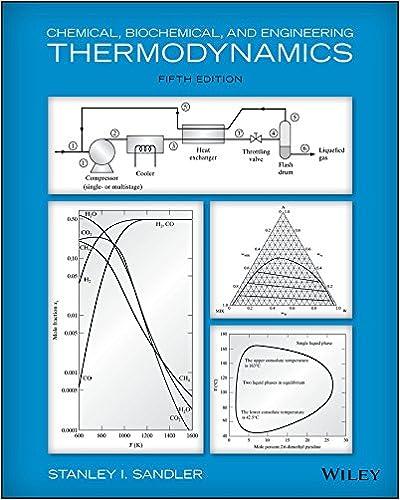The human body generates heat by the metabolism of carbohydrates and other food materials. Metabolism provides energy
Question:
The human body generates heat by the metabolism of carbohydrates and other food materials. Metabolism provides energy for all biological activities (e.g., muscle contractions). The metabolic processes also generate heat, and there are special cells in the body whose main function is heat generation. Now let us assume that our friend Joe BlueHen ingests 1 L of ice, which he allows to melt in his mouth before swallowing.
a. How much energy is required to melt the ice and warm the water to the body temperature?
b. If 1 g of fat when metabolized releases approximately 42 kJ of energy, how much fat will Joe burn by ingesting the water?
c. Suppose that, instead of ice, Joe drank 1 L of water at 0◦C. How would the answers to parts (a ) and (b) change?
Several years ago there was a story circulating the Internet that a good way to lose weight is to drink a lot of very cold water, since considerable energy would be expended within the body in heating up the cold water. Based on your calculations above; is that a reasonable method of weight loss? (The reason this claim was widely circulated is a result of the sloppy use of units. Some countries report the biologically accessible energy in food as being in units of calories, when in fact the number reported is kilocalories. For example, in the United States a teaspoon of sugar is reported ito contain 16 calories, when it is actually 16 kilocalories. Calories is incorrectly being used as an abbreviation for kilocalories.)
Step by Step Answer:

Chemical Biochemical And Engineering Thermodynamics
ISBN: 9780470504796
5th Edition
Authors: Stanley I. Sandler





